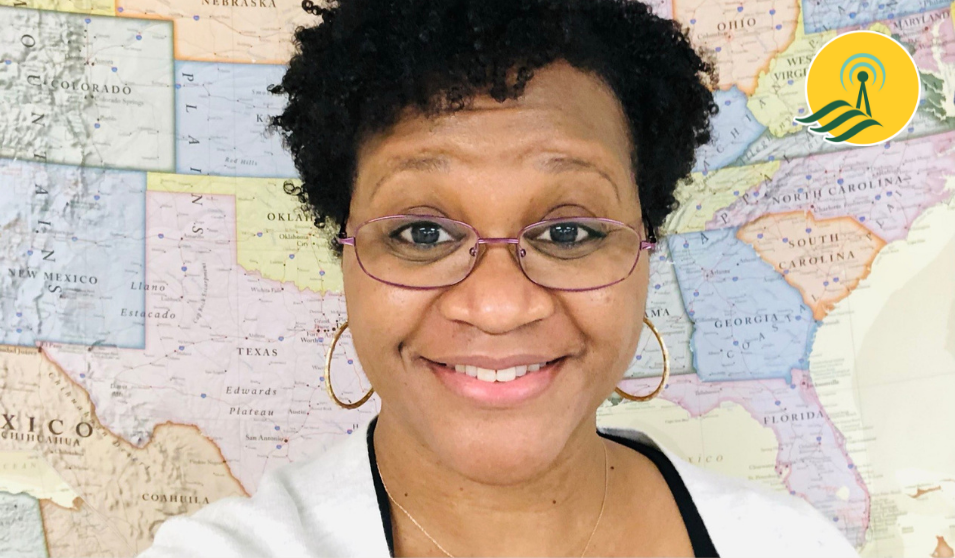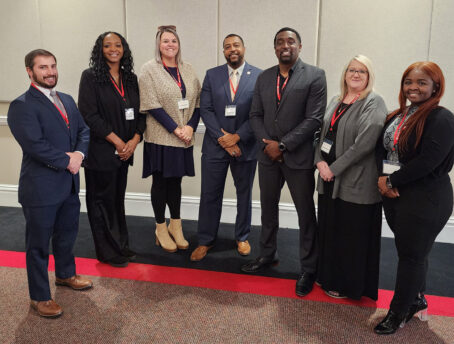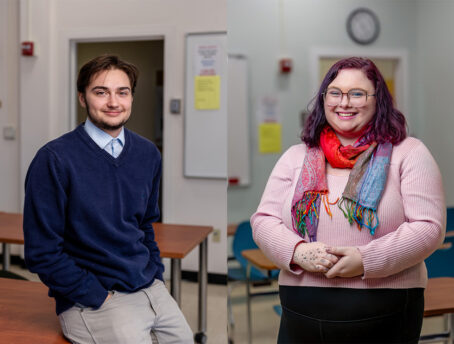Special thanks to Patti Permeter, our contact at PREPS, for sharing with us about their Rural Teacher of the Year award, and connecting us with their recipients for further storytelling. Read more about the Mississippi Rural Teachers of the Year here.
Listen to the podcast here:
You can also find our podcast on Apple Podcasts, Stitcher, Google Podcasts and Spotify.
Written Version:
The dedication of a teacher to their students is one of the enduring qualities of the profession. Aquenetta (Netta) Davis, an outstanding rural teacher in Mississippi, has traveled around the country, putting down roots in numerous states through her time in the military and later in education. Yet at each stop along the way, her belief that “all students can learn” has driven her work to educate and inspire everyone who enters her classroom. Netta spoke with us to share more about her story, and what drives her work to make education and achievement accessible to all.
While she has worked in rural schools for most of her teaching career, Netta’s story begins in one of the Delta region’s largest metropolises, an experience that drove her to enter the field:
“I'm originally from New Orleans, and I went into the military, met my husband, traveled around a good bit around the country, moving around with him as a spouse, and I went into college and basically had a love for history and decided I wanted to teach. My biggest thing was that I wanted to teach history to students the way I did not learn it when I was in high school. So, therefore it became a huge passion of mine…”
Mrs. Davis’s entry into rural schools however, came as bit of a happenstance, but quickly turned into a determined choice:
“Oh, that's a story. Well I went, like I said, I moved around with my husband. My first teaching experience was in a rural area in North Carolina and then he retired and we thought we were going to lock down in Georgia. He took a job with the railway, we ended up in North Dakota and he trained there, and he took a position down here in Memphis, uh, north Mississippi area. So that's what brought me to this area, the north Mississippi-Memphis area, and I put in an application because I'm not a stranger to teaching in a rural community and, um, and that's how I got down here to Strayhorn High School.”
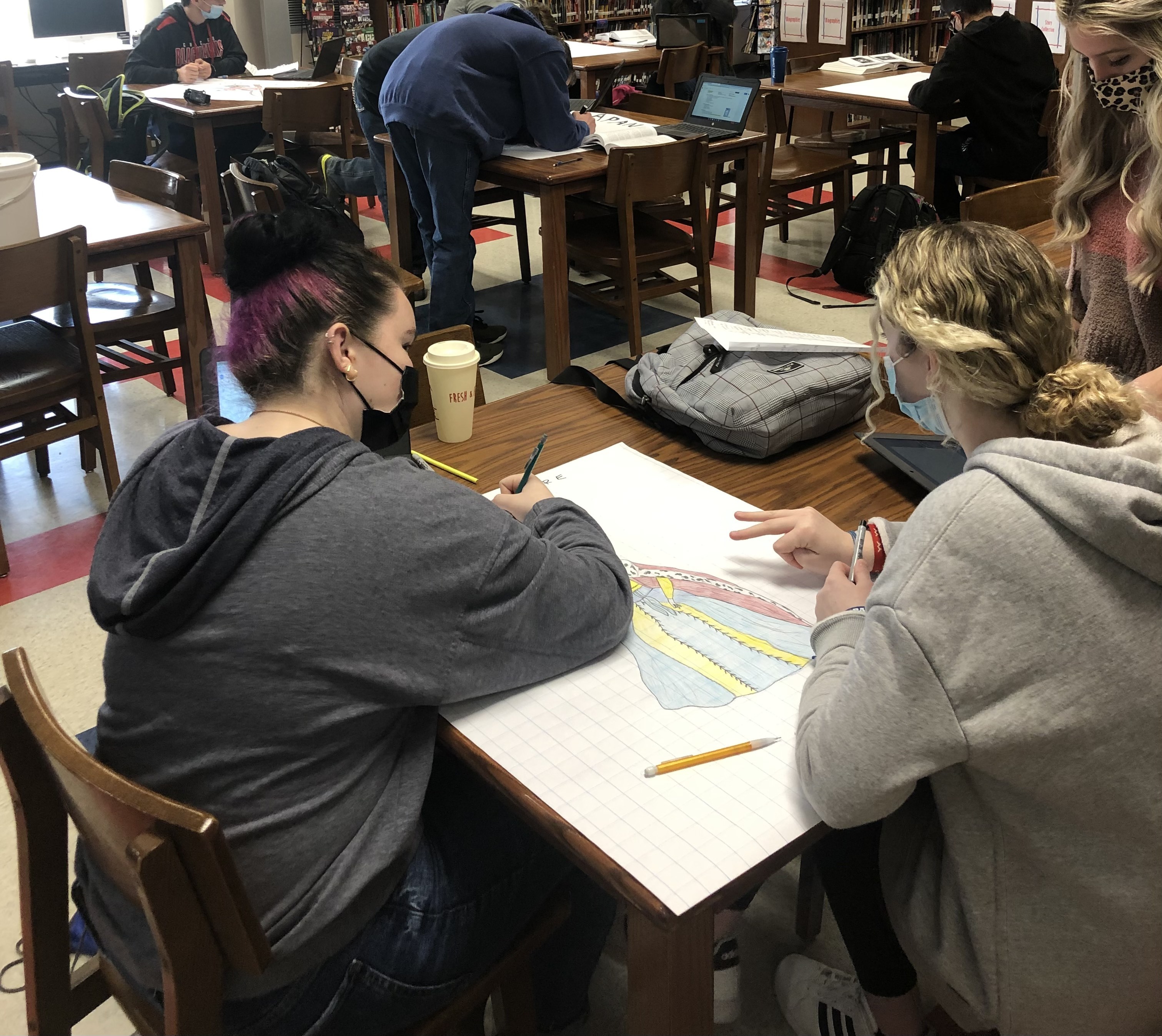
She adds that while place is undoubtedly important, it’s her passion for the work that continues to push her forward:
“I just like to teach. I'm willing to teach rural or urban, it doesn't matter to me. As a matter of fact, for some descriptives, my first teaching job was in a rural school, in an alternative school. So…I didn't mind teaching in a rural school, and I have a major respect for rural communities because…although I lived in New Orleans or grew up in New Orleans, went to high school and, you know, did all of my schooling in New Orleans, I spent a lot of time in the countryside with my mom's family, so I have a major respect for rural communities that I'm not going to shy away from as far as teaching as well.”
Netta has been teaching 10th and 11th grade world and U.S. history at Strayhorn High, in Sarah, MS, for two years now, where she has continued her passion for making history accessible to students:
“Based on the professor that I had at the time and the way she taught history, it was doing history instead of just learning vocab words or either, um, you know, just doing some questions at the end of the chapter. That's how I learned history in high school. So I figured, you know what, I can really get kids to understand the various topics within history if they're actually doing hands-on assignments.”
In particular, Mrs. Davis especially likes doing hands-on history with topics she can connect to student’s lived experiences:
“I love teaching about political corruption in the late 1800s. I love, uh, allowing students to see the, uh, the pyramid of the city boss and then the ward boss…I just really get into that topic and allowing them to see how immigrants were used for votes or …how the secret ballot came about or how we ended up voting for the senators ourselves. What was the reason behind that? Because of a lot of political corruption and being able to pull in their candidates that they wanted to, uh, basically control because everyone, you know, you're trying to develop a political career you're not gonna say anything, you know, so whatever you're gonna close your eyes to whatever is going on illegally… So that's my favorite, uh, topic to teach. Also I like when I get into the civil rights movement as well … also including Cesar Chavez and also, uh, the women's movement… I called them all, you know, ‘the movements,’ the unit overall because, you know, a lot of the other movements sort of learned from the civil rights movement.”
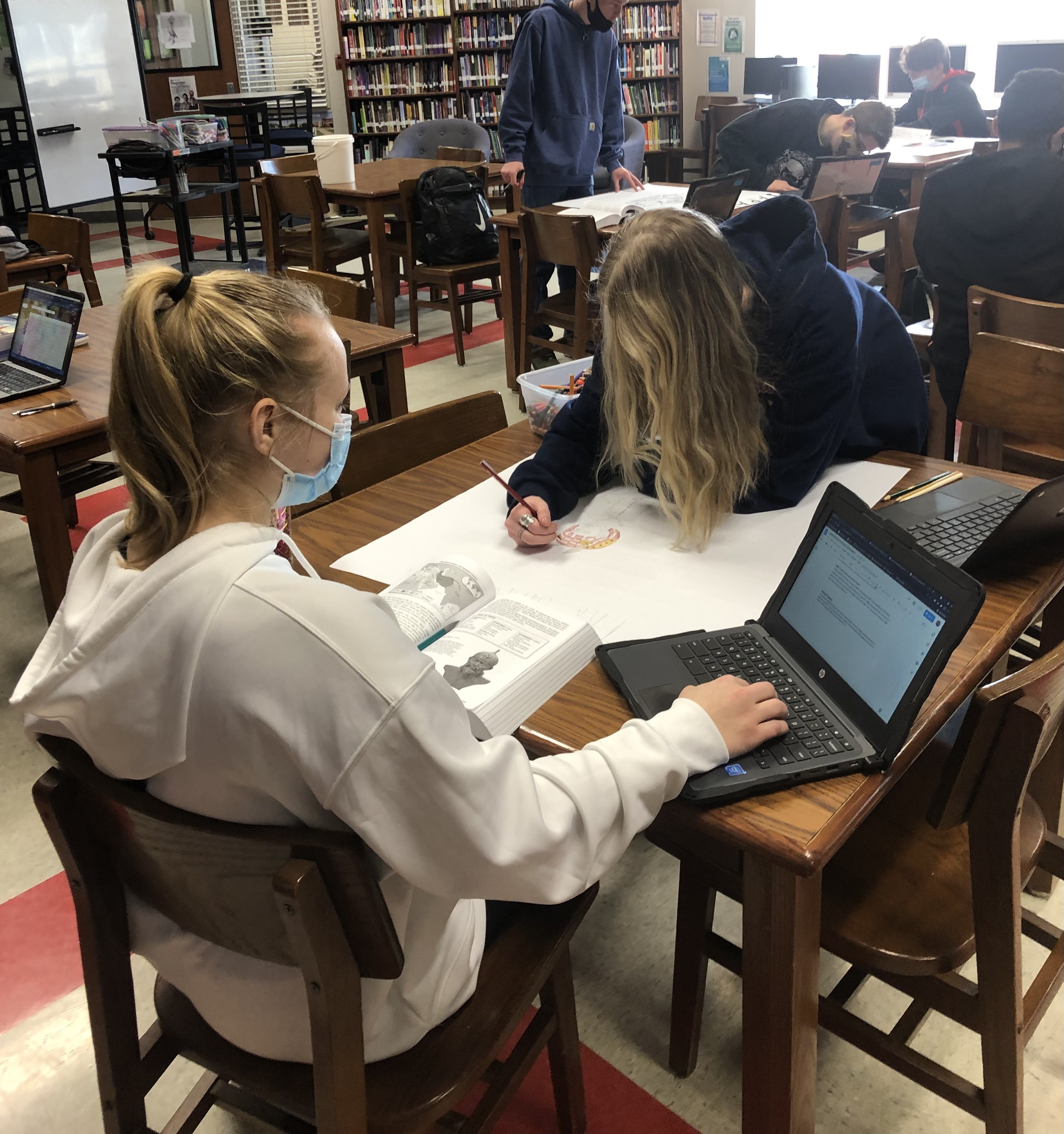
Netta also encourages students to take leadership in the classroom by sharing their knowledge and experiences to expand class content:
“Students help me with the dust bowl and explaining to me because a lot of them have agricultural studies here, and so therefore I get them involved in explaining to me what's going on with the soil and how the dust bowl was able to basically, uh, come about how that whole situation historically came about.”
Enabling student learning has been a hallmark of Netta’s work from the very beginning with her first placement in a rural alternative school. Those early days have remained as some of her most favorite memories:
“I think my favorite was in, because I've taught in two alternative schools and they both were of course still in rural and, uh, very small town, and just seeing those students who maybe society are starting to give up on…I had an experience with a student who, a young man, who went in and out of youth detention centers within the area I was teaching in, and he, I was teaching, uh, government, and because he needed to learn one-on-one, the amendments, so we just went through the amendments together. By the next day he wasn't there …and I finally asked, ‘Where is such and such?’ and they said, ‘Oh he's back in jail.’ And one of the young ladies come to me later and say, ‘I got a letter and he said to tell Mrs. Davis that he's been using all of his rights from the bill of rights,’ um, basically the ones for the rights of the accused. …and I said, okay, that's it…. it was one of the things that let me see that I am getting something across to these students or either, uh, getting that content, you know, to them in specific ways, uh, that allowed me to see, you know, even though he was in a terrible situation he was able to say I remember the fourth, the sixth, the fifth, the eighth amendment, and I can basically know how to deal with my rights here under this legal process.”
This experience working with students who others had began to give up on inspired Mrs. Davis’s professional mission and motto:
“One of the things that I always say is that all students can learn and that it doesn't matter, whatever their circumstances are, if you are available to those students, if you are available in any capacity to them…they will be willing to learn. You have behavioral issues of course but, uh, you know, you have to be available and willing to teach them. You can't come in with the idea, um, that you have to stand in the moment of disrespect. One thing I totally dislike is disrespecting a student. I try to make sure that I respect all of my students, no matter what and I'm pretty merciful. I don't care what the student had done yesterday, they can come right back in. I'm gonna give them a smile, let them know everything is okay, still talk to them.”
That process of showing respect to students is both how Mrs. Davis helps connect learners to class content and how she defines the leadership that teachers often display in their communities:
“…because I don't live in this community, I have to lead in my classroom. My classroom is where you'll see me lead and basically connect with these students. Like I say, the first line of respect for me is to come in professionally, to come in and show them that I have a respect for what they are to learn in my classroom, and not just sit at my desk and just kind of ignore them…
…being a history teacher is not easy because…it's never one of the students’ favorite topics and, you know, either subjects to learn and I knew I had to come in animated and, you know, projecting my voice when I'm teaching that topic and letting them see that I'm very passionate about this topic and know my content…
…some people can take on the idea, ‘This is a rural school and I can kind of relax.’ No…I can't do that. I want to come in, that's that major respect I have for them…you're here to learn something from me, what do I have to offer to you overall as a student? And building that trusting relationship with them, you know, student-teacher relationship to whereas, you know, if they're having any issues with the, with the content or, um, they're having personal issues and they can't turn in assignments sometimes, I'm willing to be open as much as possible…”
Having traveled around and lived in many rural areas across the country, Mrs. Davis knows that rural schools have many distinct advantages, and no shortage of challenges either.
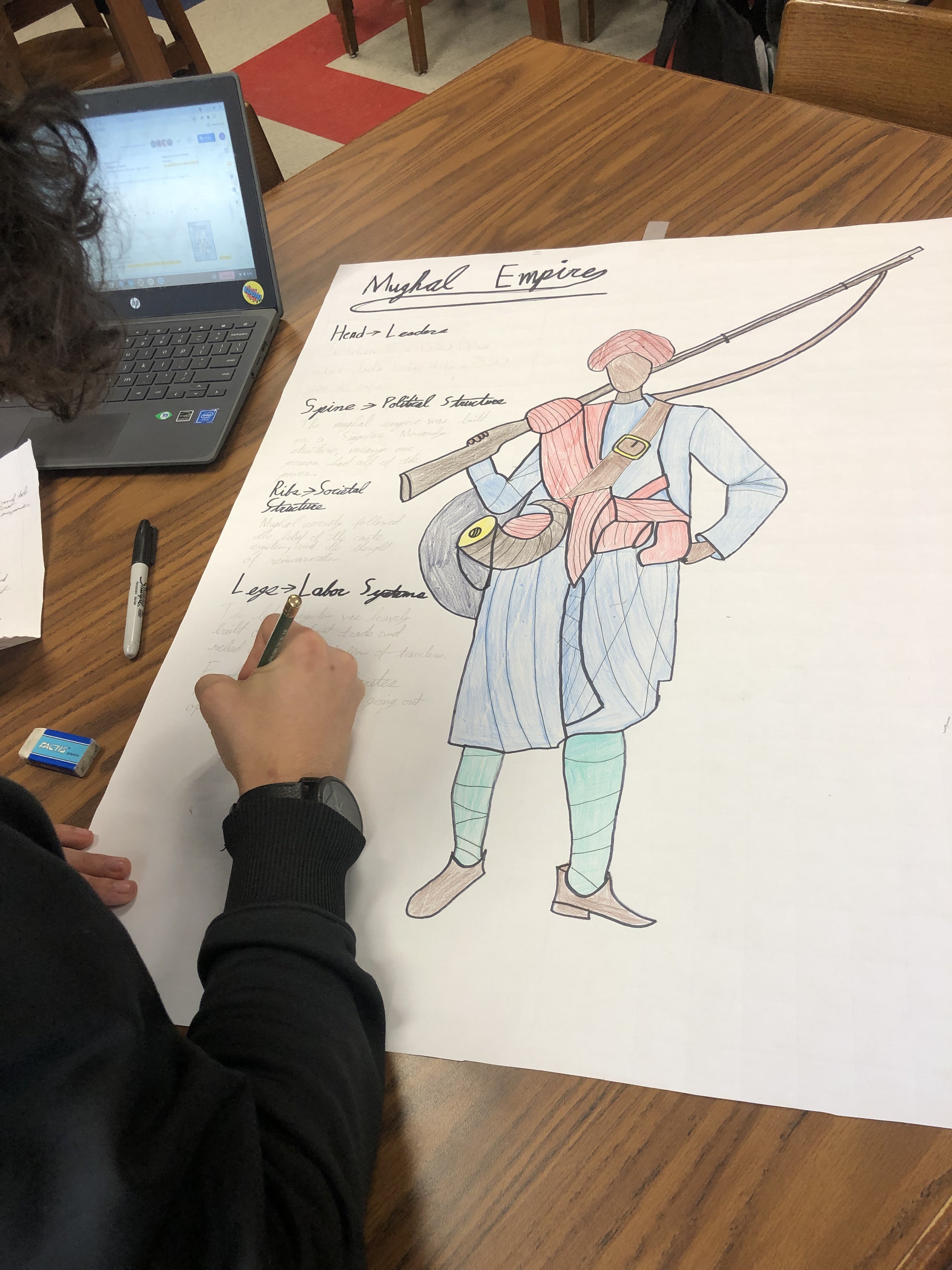
“...Having that small, uh, community within the school as, you know, overall being able to, you know, seemingly have that sort of family-like vibe, um, that's the best part I love about the rural. Teaching in a rural community, you can connect with parents a little bit easier, the students will know, maybe, what's going on with another student if they're absent. …So because it is a small community, they all know each other, uh, pretty, you know, it's pretty easy to communicate… but the disadvantage can be funding. Funding is the major disadvantage. I don't think, uh, there's an equal playing field for students of a rural community versus students in urban areas because, you know, there can be a lack of electives, um, the pay can be different…whoever is willing to teach in a rural community, you have to really think about, you know, are you willing to suffer based on the pay…but overall that's something many people have to think about…there should be, that's my major thing, there should be an equal playing field because we are teaching students and all students should have the same access to things that other students have in maybe urban areas or even suburban areas as well.”
Much of Rural Schools Collaborative’s work is around supporting rural teachers and rural teaching pathways. Many of our partner’s “Grow Your Own” or “Rural Teacher Corps” programs are helping students who want to enter the teaching field, and this is something Netta is taking to heart with her own students.
“…I am thinking about, um, you know, leading or sponsoring the Future Teachers of America here because I did hear one student, it just kind of came across my mind when one student say, ‘I want to be a teacher,’ and that's very rare… the teaching, uh, field is decreasing, that not many people opting to go into the teaching field or education…so… I am thinking about leading that, uh, club here at school.”
For the clear passion she shows for her students and profession, Netta was recognized as her Congressional District’s Rural Teacher of the Year by Mississippi’s Program of Research and Evaluation for Public Schools (PREPS), and we can see why. In her eyes, being awarded the title is yet another call to renew her sense of mission and service to students:
“I just want to teach. That's all I want to be able to serve young people is… that's all I'm here to do. And to reach that, uh, type of height or recognition, um, it's quite humbling because now I have to do a lot of self-reflection and say, okay ,what more can I do? And are, either, how can I get a little bit better because... I want to make sure I'm still serving these young people. I don't want to stop. I don't want to get to a certain point and say, ‘Oh I've done this and I can now relax,’ or something…I'm quite humbled by the whole experience.”
Thank you for listening to this episode of the I Am A Rural Teacher Podcast. We’d like to thank our partners at the National Rural Education Association for collaborating with us on this episode. A big thank you to PREPS, the NREA’s Mississippi Affiliate, for sharing with us about their Rural Teacher of the Year award, and connecting us with their recipients for further storytelling. In addition to being an affiliate state of the NREA, Mississippi is included in our Black Belt Regional Hub headed up by the University of West Alabama.

